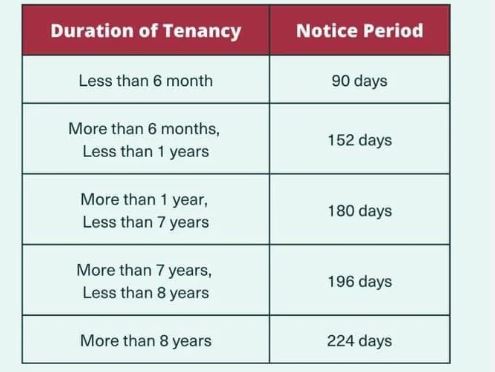How to Sell Your Rental Property in Cork and West Cork
- Why Are Landlords in Cork Choosing to Exit the Market?
- Steps to Selling Your Rental Property in Cork
- Prepare Your Property for Sale
- Engage Professionals Early
- Understanding the Tax Implications of Selling Your Rental Property
- Exemptions from Capital Gains Tax
- How to Communicate with Your Tenant About the Sale
- Frequently asked questions
- Need advice when selling your rental property in Cork or West Cork?
How to Sell Your Rental Property in Cork and West Cork: Expert Guide for Landlords
As a landlord in Cork or West Cork considering selling your rental property, you may have numerous questions about the best steps to take and the financial implications involved. Whether you’re selling to help a family member get onto the property ladder or looking to release equity for other investments, selling a rental property requires careful planning. Here’s a comprehensive guide to help you through this process effectively.
Why Are Landlords in Cork Choosing to Exit the Market?
Over the past few years, many landlords in Cork have opted to sell their rental properties. The main reasons include:
- Increasing Legislation Complexity: Managing rental properties has become more challenging due to stringent regulations.
- High Property Prices: The current market conditions in Cork provide an excellent opportunity to capitalise on significant property appreciation.
- Need for Liquidity: Many landlords are looking to free up capital for personal reasons or to invest in other ventures.

Steps to Selling Your Rental Property in Cork
Get a Professional Valuation of Your Property
Before making any decisions, it’s crucial to get a professional valuation of your property. This will help you understand its current market value and set realistic expectations for the sale price. Book your Free Market Valuation with DNG Galvin here
Selling a property with tenants or in vacant possession
One of the first decisions you need to make is whether to sell your property with the tenant in place or to vacate the property before selling. Each option has distinct advantages and disadvantages:
- Selling Vacant possession:
- Higher Sale Price: Vacant properties often achieve higher prices.
- Broader Buyer Appeal: A vacant property attracts both investors and those looking for a primary residence.
- Easier Viewings: With no tenants, there are fewer restrictions on viewing times, making it easier to showcase the property.
- Selling with Tenant in Place:
- Limited Market: Selling with tenants typically appeals only to investors, potentially reducing your buyer pool.
- Tenant Cooperation: You’ll need to coordinate viewings with the tenant, who must keep the property presentable.
- Continued Income: The new owner will inherit an immediate rental income, which can be attractive to certain buyers.
Notice of Termination
A landlord must issue a notice of termination. There is a strict protocol for issuing notice of termination. The notice period that you are required to give to tenants varies depending on how long they have been your tenants at the property that you are selling. Note that Day 1 of the notice period starts the day after the notice of termination is issued. The RTB revised the periods of notice for tenants most recently on July 6th 2022 as below.

Prepare Your Property for Sale
To maximize your sale price, presenting your property in its best condition is crucial. Here’s how to get started:
- Address Key Repairs: Fix any significant issues such as leaks, dampness, or structural damage. These can deter buyers or affect mortgage approvals.
- Deep Clean and Declutter: Ensure the property is clean and free of any unpleasant odours. A neutral, tidy space appeals more to potential buyers.
- Staging: Simple staging, like fresh linens on beds and removing outdated furniture, can significantly enhance the property’s appeal.
Engage Professionals Early
- Estate Agent: Work with an experienced estate agent who understands the Cork market. They can provide valuable insights on pricing, marketing strategies, and negotiating terms.
- Solicitor: Ensure all legal documents are in order, including property deeds, the Building Energy Rating (BER) certificate, and any compliance certificates for property alterations.
- Mortgage Provider: Notify your lender of your intent to sell if you have a mortgage. Understand any potential early repayment charges or other implications.
Understanding the Tax Implications of Selling Your Rental Property
Capital Gains Tax (CGT)
Selling a rental property usually involves paying Capital Gains Tax on the profit from the sale. To calculate the amount of Capital gains tax you owe, you need to subtract the price you paid for your property including other allowable expenses from its selling price to work out the profit. The current rate is 33% on the gain.
Exemptions from Capital Gains Tax
Enhancement costs – any money spent on enhancing (adding value) of the building over the years can be netted against the taxable gain. Furthermore these expenses can be indexed up to todays value and not just the amount you paid at the time of doing the work. General maintenance expenditure is not permissible.
Buying and Selling Costs – When you bought your property you incurred expenses such as legal fees and surveyors fees. When you sell you will incur estate agency fees and legal fees. These expense’s can be netted against your gain. The costs associated with purchasing can be indexed up to present value.
Annual Exemption – The first €1,270 of taxable gains in a tax year are exempt from CGT. If you are married or in a civil partnership, this exemption is available to each spouse or civil partner but is not transferable.
Principal Private Residence Exemption – If you lived in the property for a period of time but also rented the property for a period, the gain that accrued during the period in which you lived in the property is not taxable for CGT purposes. So calculate the full gain and then exclude the percentage of gain that occurred while living in the property.
Due to the complexity of CGT calculations, consulting with a tax advisor is highly recommended to ensure you are prepared for any tax liabilities.
How to Communicate with Your Tenant About the Sale
Maintaining a positive relationship with your tenant during the sale process is crucial. Here’s how to handle this delicately:
- Notice of Sale: Provide the tenant with formal notice of your intention to sell, including the required statutory declaration. Ensure you comply with the Residential Tenancies Acts regarding the notice period.
- Viewing Arrangements: Discuss and agree on viewing schedules with the tenant. Make sure to respect their privacy and convenience.
- Property Condition: Encourage the tenant to keep the property clean and tidy during viewings. Offering incentives for their cooperation can be helpful.
Selling a rental property in Cork involves careful planning, especially when tenants are involved. By obtaining a professional valuation, deciding whether to sell with or without tenants, preparing your property, understanding tax implications, and maintaining good tenant relations, you can facilitate a smooth and successful sale. Partnering with experienced professionals will help you navigate the complexities and achieve your financial goals.
For personalised advice and to start the selling process, contact DNG Galvin. Our team is here to assist you every step of the way.
Frequently asked questions
1. What are the benefits of selling a rental property vacant?
Vacant properties usually sell faster and for higher prices, as they appeal to a broader range of buyers, including those looking for a primary residence.
2. How can I reduce the amount of Capital Gains Tax I need to pay?
You can offset certain costs like legal fees, stamp duty, and significant improvements against your gain. Additionally, exemptions for periods when the property was your primary residence can apply.
3. What are the notice requirements for tenants when selling a rental property
The notice period depends on the length of the tenancy. Details can be found on the RTB website.
How do I sell my house to the Council.
The acquisition of second-hand properties by Cork County Council is a key component of the supply of additional social housing units, particularly in the short to medium term. Various factors are taken into account by Council before a decision is made to purchase, i.e. housing need, the price of the property, tenure mix in the estate or in close proximity to the property. Cork County Council will normally only undertake an acquisition where a property has been placed for sale to the general public through an auctioneer or agent.
The following details will be required in order to assess the suitability of a property for social housing:
- Property Type (detached/semi-terraced)
- Size
- Exact Location (Eircode)
- Photographs
- BER Rating
- Name and contact number of Auctioneer handling the sale.
- Year of construction.
- Planning reference number (if available)
- Site Size
- Any other relevant information
- Sale Price
Need advice when selling your rental property in Cork or West Cork?
Need more advice when it comes to selling your investment property in Cork or West Cork then let the team in DNG Galvin Estate Agents know. Our property experts are on hand to guide you through the process and find a buyer for your property when it comes time to sell. For more simply call 023 8844958 . Alternatively, click to grab your Free Property Valuation Here to get your property sales process underway from today
